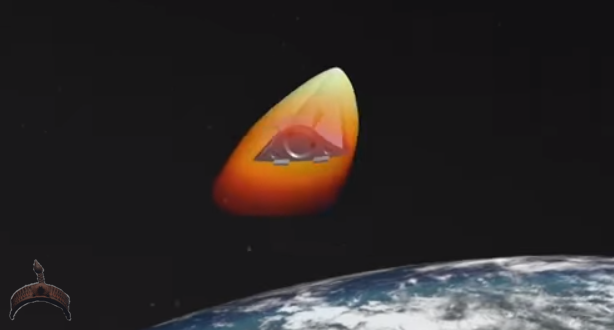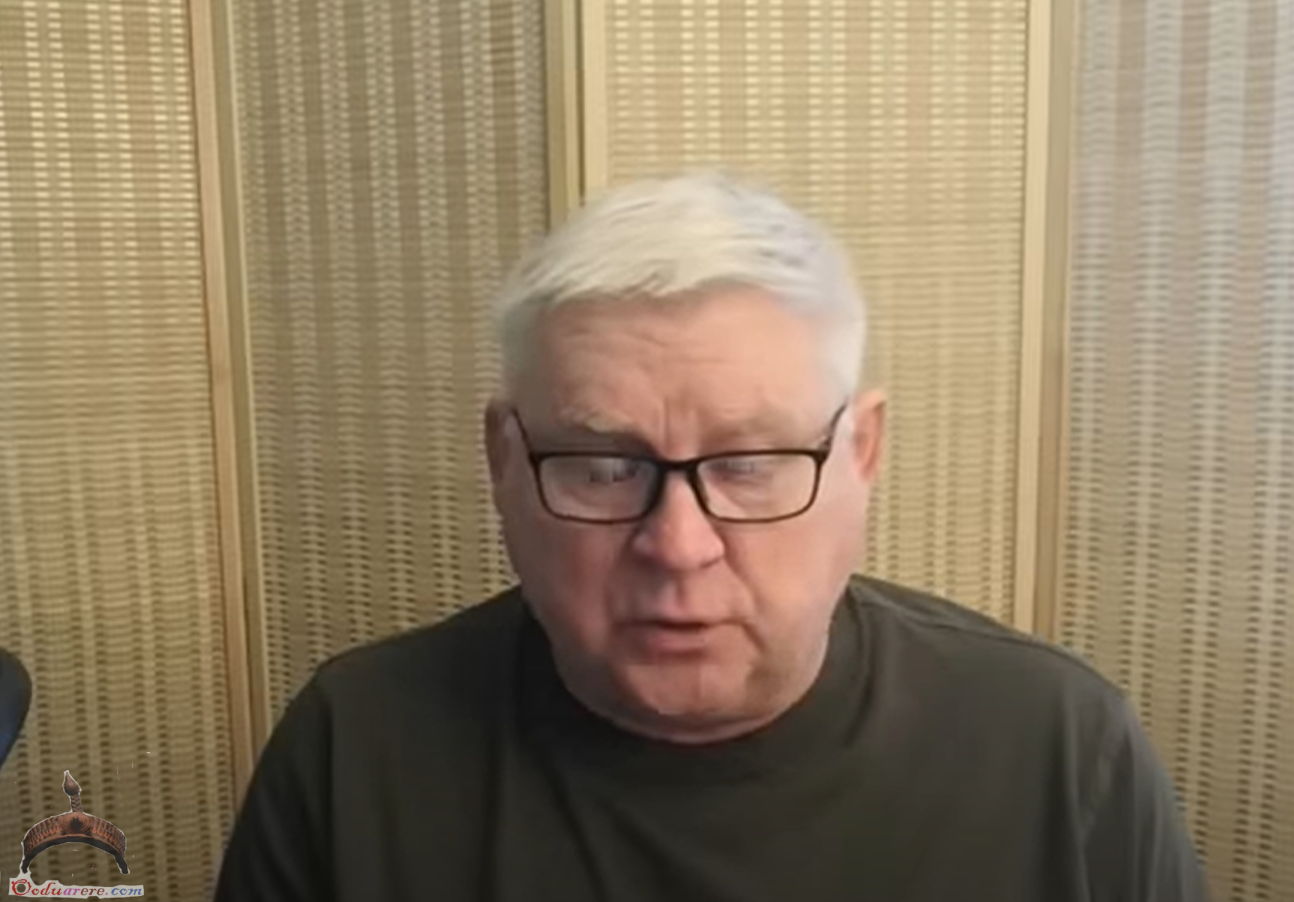Translated by Scott Humor
Vladimir Putin’s speech at SPIEF 2019 is, on the one hand, a sequel to his famous “Munich speech”, and on the other hand, a claim for Russia’s most active participation in reforms (or even a takedown) of the existing international order, at once–in politics, economy, and technology. Also, the Russian leader once again turned out to be the only world politician who had the wisdom and courage to call a spade a spade, to voice what is being said in diplomatic lobbies, and to give a correct description of what is happening in the world.
And in the world, unfortunately, we have a war—”the first technology war of the new digital era.” Its results will affect world history no less than the industrial revolution of the XIX century, World War I, the Great Patriotic war and the Cold War. Not participating is impossible and won’t work, which equally applies to China (which so far has been the main target for Washington’s blows), and to all other countries (including Russia) that the US wants to keep in a state of technological backwardness and technological dependence on American corporations and the whims of American politicians.
When serious political leaders, such as President Putin or President XI, talk about the large-scale conflicts and threats that Washington’s aggression poses to world stability, the Western media often (and absolutely groundlessly) accuse them of using the “rhetoric of a besieged fortress” and trying to awaken anti-American feelings in their own people. In fact, as it is easy to see after the famous “give-away of cookies” in Kiev and sanctions (plus attempts to bankrupt) against Huawei and ZTE, no one will ever surpass the American politicians and diplomats themselves in strengthening anti-American emotions from Kaliningrad to Hainan.
An important point of Vladimir Putin’s speech is a detailed enumeration of painful points (or, quite frankly, rotting wounds) of the current international system, the amount of which makes us think that the “king” (or in this case —”hegemon”) was, if not naked, then definitely in rags.
The point of no return was passed about a decade ago, when Washington (with the support of the Brussels bureaucracy) refused to reform the world economy, the format of development and the international monetary system, giving a clear preference to measures that “anesthetized” the consequences of the 2008 crisis, but led to serious side effects. The Russian leader described logic and fallacy of a strategy to maintain the status quo: “However, truth be told, there was not enough will or, perhaps, courage, to sort things out and draw the corresponding conclusions. A simplified approach prevailed whereby the global development model was allegedly quite good and, essentially, nothing needed to be changed since it was enough to eliminate the symptoms and coordinate some rules and institutions in the global economy and finance, and then everything would turn out just fine. There were many hopes and positive expectations back then, but they quickly vanished. Quantitative easing and other measures failed to resolve the problems and only pushed them into the future.”
It is worth to translate into ordinary Russian language those polite formulations of the Russian President, which were addressed to businessmen, financiers and economists present at the SPIEF. The same “quantitative easing” and other measures pointed out by Vladimir Putin, in fact, boil down to the following: the United States, instead of recognizing the need for reform of the world economy and the monetary system, began to use first the dollar printing press, and then the “dollar sanctions” (disconnection from the dollar financial system, “secondary sanctions” and the embargo) in order to crush competitors and maintain American hegemony, for which there are no objective grounds.
In this context, it is worth quoting the position of a famous American financier and head of the investment Fund DoubleLine Capital Jeffrey Gundlach (better known as the “king of bonds”), who tweeted: “President Trump says that the US is a “piggy bank” from which the rest of the world tried to steal. But the US has $124 trillion in unfunded liabilities!”
There are two (fundamentally incompatible) views on the modern world: Trump’s view (and many others in Washington) which suggests that the US is the victim of the rest of the world—and this position is often publicly mocked by the known American financiers.
And there is Vladimir Putin’s view, which showed on the basis of statistics from international financial institutions that the claims not only of the US, but of the “collective West” to global domination are already groundless: “In the past three decades, the share of advanced countries in the global GDP in purchasing power parity decreased from 58 to 40 percent. In the G7 it dropped from 46 to 30 percent, whereas the weight of the countries with developing markets is growing. Such rapid development of new economies that, apart from their interests, have their own development platforms and views on globalisation and regional integration processes does not correlate well with the ideas that seemed immutable relatively recently.”
It turns out that this is the American President who resorts to the rhetoric of a “besieged fortress” (or rather, “besieged piggy bank”), while the Russian leader offers specific solutions for the conservation of pluses of globalization in reforming its bases: instead of respecting the American hegemony, Putin offers to put at the forefront the respect for the sovereignty of participants of the international trade and technical cooperation.
It may seem (and our Western partners, as well as their media allies within Russia, will do everything to promote this illusion) that the President’s message sent to the West within the SPIEF is initially doomed to remain without a positive answer. This view of things does not correspond to reality, because it does not reflect reality in all its complexity and completeness. Yes, official Washington is unlikely to agree to participate in the Russian-Chinese format of “globalization based on respect for sovereignty,” but this is not so important, because the White House is not the whole of America, and the European Commission is not the whole of Europe. Businessmen-pragmatists look at the situation from a completely different angle. The symbol of this special attitude to Russia and its future was the theme of a meeting between Western businessmen and Vladimir Putin. As the General Director of Russian direct investment fund Kirill Dmitriev said, “There was a very successful meeting of the President with investors who manage capital of $15 trillion. They really confirmed their interest in national projects based on the fact that they have already made a lot of profitable, good investments with us and they see the potential for the implementation of national projects.”
The desire of foreign business to rely on Russia is the best proof that globalization on the basis of respect for sovereignty has a great, though not a problem-free future.
 Ọmọ Oòduà Naija Gist | News From Nigeria | Entertainment gist Nigeria|Networking|News.. Visit for Nigeria breaking news , Nigerian Movies , Naija music , Jobs In Nigeria , Naija News , Nollywood, Gist and more
Ọmọ Oòduà Naija Gist | News From Nigeria | Entertainment gist Nigeria|Networking|News.. Visit for Nigeria breaking news , Nigerian Movies , Naija music , Jobs In Nigeria , Naija News , Nollywood, Gist and more








